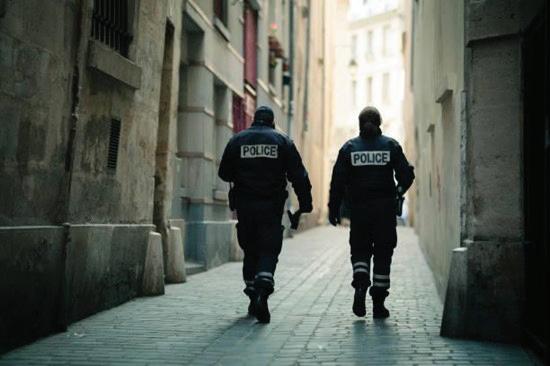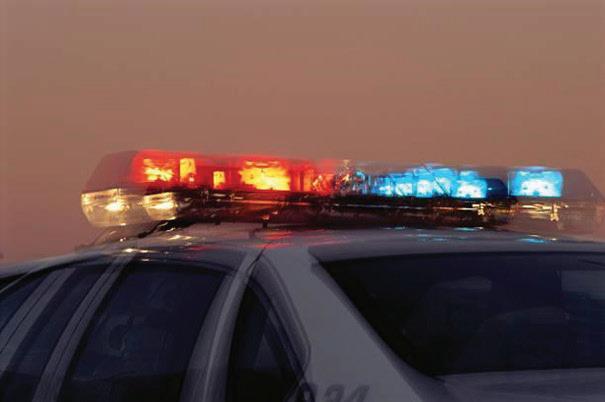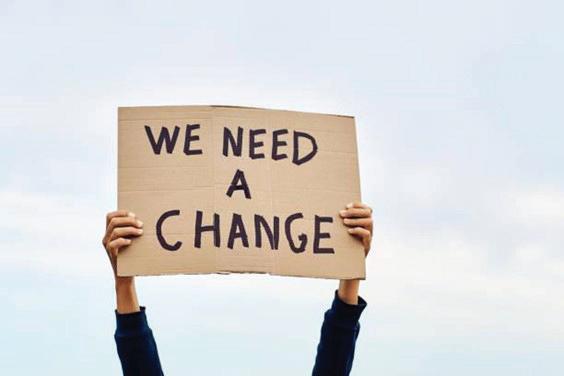
4 minute read
Police violence against Roma people
Who do you call when the police murders?
by Jaqueline Schett
When seeing a crime taking place or feeling threatened, the first impulse of many people is to call the police for help. However, for marginalized groups the police is not a symbol of protection, but of danger and brutality. Who do you call when the police murders? The cases of police violence, that make it to the headlines often get dismissed as an exception, the officers committing crimes as “bad apples”, or even as heroes that were in danger and just tried to save their own lives. However, it is well-known that there are unproportionally many radical right-wingers or even neo-Nazis amongst police officers, and studies show that police officers are more likely to commit domestic violence against their family than the general population. While it is extremely concerning that the institution that is supposed to protect us apparently attracts these sorts of people, it is no coincidence. Racism is institutionally ingrained in the police, and the many incidents where people from marginalized groups become victims of police brutality are no isolated cases.
One of the marginalized groups in Greece are Roma people: they face discrimination and exclusion. Compared to 20% of the general population, almost 100% of the Greek Roma are at risk for poverty. Half of them don’t have access to electricity and sanitation. Racism against Roma people is widely spread in the Greek population, and police officers are no exception. There have been many cases where racism from police officers, against Roma people, lead to the death of persons from the community. Two recent examples are the deaths of Nikos Sampanis and Kostas Fragoulis.
Who do you call when the police murders?
On the night of October 22 of 2021, a car that didn’t stop at a police checkpoint was pursued by police motorcycles in Athens. At least 36 shots were fired by the officers, and Nikos Sampanis, one of the three Roma occupants in the car, was immediately killed, another one deadly wounded. The third passenger, a 15-year-old, managed to escape the situation. Contrary to the officers’ claim that their lives were endangered by the teenagers, he later told the media that the car had already stopped and that all three of them had their hands in the air, when the police opened fire: “We were afraid they would kill us. As soon as we stopped, we put our hands up and they shot us.”One year later, the 16 years old Roman teenager Kostas Fragoulis, drove away from a gas station in Thessaloniki without paying for his 20 euros gas bill. He was pursued with a motorcycle by police officers who happened to be at the station, until one of the policemen shot him in the head. Fragoulis died after being hospitalized for eight days.
Violence is not the solution
These two cases are tragic, but they are no exception: police violence is more than the fault of individual “bad” officers, it is the logical consequence of a systemically racist institution that tries to “fight” crime with violence.

Even if it would be possible to have a police without right-wingers and neo-Nazis, the current approach towards crime is questionable, to say the least. The problems our society has require social solutions, guns and handcuffs won’t make our cities safer. Poverty is the main reason why crimes happen: someone who has enough money to pay for their needs doesn’t need to steal. The problems that the police are trying to “solve” are results of a system that prioritizes profit over everything else, are results of capitalism - poverty, homelessness, drug addiction, mental illnesses. Police officers are helping none of the people suffering from these conditions, they only put them in more danger, making their lives even harder. What we need are not more officers or more police stations and weapons, what we need is everybody to have housing, health care and places to go to seek help in emergencies. We need therapists and social workers, but most of all, we need a fundamental change in our system. Capitalism puts people in poverty and then criminalizes and punishes them for being poor. If we want to solve crime, what we need is not more police but a system change.











